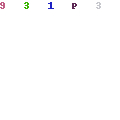
The day a newborn comes into this world parents become conscious of everything around the baby. And if it’s the first baby then due to no experience and no knowledge of the dos and don’ts of parenting, they are experimenting.
But one thing that parents should keep in mind is that as the baby grows older, there will be a need to give a little freedom. Freedom of choice, freedom of space, let the baby grow up at his/her own pace.
In today’s world, psychologists have come up with interesting terminology for “Helicopter Parenting”. And this terminology represents the parenting of those parents who have gone beyond the care realm.
What is helicopter parenting?
Helicopter parenting is an extreme form of taking care of children. Parents don’t trust the unreliable world that children face when they step out of the home.
They want to take care of everything on behalf of their little kids from a bodily injury to a fight with a friend. Because they want to make the endings always good for their children.
But doing so they forget that they provide short-term wins but in the long term, they are making their children dependent on them. The children grow up with the inability to fight for themselves or to successfully pass any hurdle.
Parenting style determines child health
Children’s welfare is the center point when it comes to the concerns of socializing and physical health. But the helicopter parenting only portrays the following focal points while upbringing:
- Importance of child
- Expert guided education of skills and knowledge
- Intensive chores responsibility
- Excessive organization
And all the above-mentioned practices cost more money, effort, energy, and time, of parents. But we should always remember that moderation is the best policy!
The helicopter parenting style mainly influences a child’s health in two categories :
- Physical health
- Psychological health
And the studies show that extreme parenting has positive effects on physical health but negative effects on psychological health.[1]
How helicopter parenting affects physical health
Parents who intensively set rules and try to organize their children’s life help to produce positive health effects in children’s life. They watch closely the eating habits and implement good rules for better growth.
So the children become more healthy eaters with interest in all kinds of nutritional food items. And the intake of junk becomes less to nil, which helps children grow strong.
Parents following an intensive parenting style try to set rules for limited screen times which has shown a decrease in body weight due to more physical activity.[2] Also, there is evidence of more social interaction, self-worth, and good behavior changes.
How helicopter parenting affects psychological health
When parents set healthy limits, children show positive health signs. On the other hand, when parents get into the mode of dictation while setting limits on freedom of choice, negative effects start to rise.
These negative effects can be seen in adulthood or later in life. Due to interfering in every decision children make, parents let them lose confidence.
Children don’t feel competent enough to participate in any race of life. They enter the phase of depression and anxiety when they are college going.[3]
And later in life are not able to make important choices on their own. They develop a lack of skills to cope with any bad situation, to remove hurdles, or learn a valuable lesson.
There has also been reported a rise in the divorce rate due to negative psychological effects.
What leads to Helicopter parenting
While parents start hovering all the time over children, there is a need to understand why they do so. There are a few reasons why they get overprotective of their children.
Anxious parents start helicopter parenting
Parents mostly get over conscious of their children getting hurt. They are afraid of the feelings their children will have when they will face failures.
Parents want to keep their children protected from the damages in any phase of life. Because they want to see their children always happy and satisfied.
Neglected children become helicopter parents
Maybe the parents were neglected when they were kids. And they are actually struggling to keep their children away from what they experienced.
Some kind of abuse or not being loved by parents make adults conscious of their parenthood. So their inner man tells them to provide their children with every facility in the world.
Perfection pressure leads to helicopter parenting
When the helicopter parents are surrounded by other helicopter parents they are pushed by each other to be perfect. This pressure forces you to join the intensive parenting club.
Especially mothers spend more time with their kids at home or they are considered being responsible for their upbringing. So they face very intense pressure to be a perfect mother.[4]
Sense of achievement through children
One of the important reasons behind helicopter parenting is that parents invest so much in their children that now they want good results. So getting a sense of achievement they remove all the obstacles from their child’s path so that their child succeeds.
For Example, when a child gets a bad score in an exam they will talk to their teacher to review the score and do anything to make the score of good.
But doing so parents forget that their children are not learning the skills to make things better with effort. And parents will not always be there to help them.
How does helicopter parenting look like in today’s time?
There are many parents today who have made this helicopter parenting scarier.
What I have seen is that they are putting too much burden on children, more than children can handle.
For Example, the most stressful thing is early childhood education. The race of making your child genius and teaching them a lot of concepts before they even start the actual school.
Similarly, many parents try to get everything for their children before even they wish for it. So the children are not learning the value of money and the struggle to earn it.
While a kid is writing English homework and you interrupt them to make it better, it is way too much overshadowing. This way they will mostly do the things your way to make you happy.
They will not be able to nourish their thinking and imagination. And a sense of less competition will hover them like a black cloud.
Where to draw a line
The part of helicopter parenting I think is right, in early childhood, is:
- Routines discipline
- Screen time limitation
- Natural consequences of wrong behavior (not severe punishments)
- Right study rules
- Good rules to develop better eating habits
This is all that positively teaches your children, how to nicely behave and get organized which leads to success in life.
But parents need to be easy on many other things, where being over conscious is harmful. I will explain how you can avoid intensive parenting.
Too much entertaining kids
Spending too much time with kids and thinking that they might be feeling bored is very wrong.
We should not always try to entertain the kids.[5]
Boredom is healthy for little children. It helps them dive into the world of imagination or sometimes lets them explore the world.
Let them solve simple problems
When you feel that the child can solve the problem, tell them nicely, and encourage them. Don’t run to help them the very first time they ask for help.
Try to stay calm and stop yourself from making things easier all the time.
Try to let them resolve conflicts with their friends
Don’t be a parent who will go for a small thing to the other parent for complaint. With a little guidance and good advice let them resolve their fights with friends or schoolmates.
Involving kids in age-appropriate chores
The most important point to remember in parenting is that it teaches kids to take responsibility. We should give them age-appropriate chores around the house.
This helps them in being organized thus successful in every stage of life. They will become more responsible and caring about social issues.
Teach them to accept bad endings
Not everything is perfect and not always everything will happen as they thought or desired. Help them to learn to be patient and accept the things as they come their way.
Don’t buy too much stuff they wish for
As parents, we love our children so much that we want them to have all the happiness in the world. But sometimes it’s not possible and sometimes it’s harmful.
Children should learn the value of money and things. Teach them how sometimes we have to struggle hard for certain things.
Correction is not always good
Always correcting them on how to make a drawing or how to dress up properly or how to make their hair is not necessary. Try to appreciate their efforts and intentions.
Finding mistakes all the time in their work will make them feel less worthy and will not let them bloom and foster their style and choices.
Have some time for yourself
Less hovering over children means some more quality time for yourself. This means you get time to relax and indulge in some recreational experiences.
You can start working on your passions or the hobbies that you have long forgotten in a busy life with kids.
Conclusion
Parents love their children a lot but it’s important to understand how that love is going to affect children.
Intensive parenting helps kids in some ways but the results are only short term. As soon as children start their journey towards adulthood more bad effects start appearing.
Helping children to speak, walk, and do chores on their own makes parents forgetful in the aspect that children will next grow up to have their personality.
For that phase in life, they need to learn a lot of good lessons to live their life happily and skillfully.
Getting support for autonomy from parents plays a vital role in a growing adult’s mental health development.
When you feel you are doing helicopter parenting take a moment to realize that you will not always be there with children. And that, this would only make problems for children rather than helping them.
Sometimes you are unconsciously helicopter parenting your kids so it’s a good strategy to analyze your parenting and children’s behavior from time to time.
Rearing your next generation is the foremost and most important duty of those who have been blessed with offsprings.
- Yerkes, Mara A., et al. “In the best interests of children? The paradox of intensive parenting and children’s health.” Critical Public Health (2019): 1-12. ↑
- De Decker, Ellen, et al. “Influencing factors of screen time in preschool children: an exploration of parents’ perceptions through focus groups in six European countries.” Obesity reviews 13 (2012): 75-84. ↑
- Srivastav, Deepika, and MN Lal Mathur. “Helicopter Parenting and Adolescent Development: From the Perspective of Mental Health.” Parenting. IntechOpen, 2020. ↑
- Meeussen, Loes, and Colette Van Laar. “Feeling pressure to be a perfect mother relates to parental burnout and career ambitions.” Frontiers in psychology 9 (2018): 2113. ↑
- Mann, Sandi. The science of boredom: Why boredom is good. Hachette UK, 2016. ↑

















